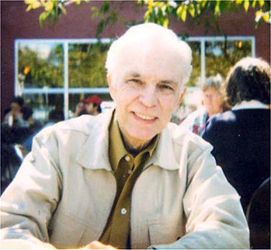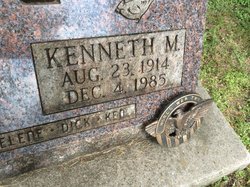Com. v. Muse, K. (memorandum)
J.S53033/13 NON-PRECEDENTIAL DECISION – SEE SUPERIOR COURT I.O.P. 65.37 COMMONWEALTH OF PENNSYLVANIA, Appellee v. KENNETH MARCEL MUSE, Appellant : : : : : : : : : : IN THE SUPERIOR COURT OF PENNSYLVANIA No. 456 MDA 2013 Appeal from the PCRA Order February 28, 2013 In the Court of Common Pleas of Adams County Criminal Division No(s).: CP-01-CR-0000022-2010 BEFORE: BENDER, LAZARUS, and FITZGERALD,* JJ. MEMORANDUM BY FITZGERALD, J.: FILED OCTOBER 15, 2013 Appellant, Kenneth Marcel Muse, appeals from the order of the Adams County Court of Common Pleas that denied his first Post Conviction Relief Act1 (PCRA) petition without a hearing. Counsel for Appellant has filed a petition to withdraw from representation and a Turner/Finley2 letter in this Court asserting that Appellant s intended claim lacks merit. * Former Justice specially assigned to the Superior Court. 1 We deny the 42 Pa.C.S. §§ 9541-9546. 2 Commonwealth v. Turner, 544 A.2d 927 (Pa. 1988); Commonwealth v. Finley, 550 A.2d 213 (Pa. Super. 1988) (en banc). J. S53033/13 petition to withdraw, vacate the order, and remand for further proceedings consistent with this memorandum. The Commonwealth, on May 1, 2009, initially charged Appellant with several drug offenses and conspiracy, after police officers found him and a female passenger sleeping in a vehicle parked at a Sheetz store. Several pill bottles were discovered near the driver s seat and twenty bags of cocaine were found in the passenger s purse. The police searched Appellant incident to arrest and found a large amount of money on his person. The trial court, on September 22, 2009, granted Appellant s motion to suppress the pill bottles and money, denied suppression of the cocaine found in the passenger s purse, and granted Appellant s motion to dismiss all charges against him. On November 10, 2009, the Commonwealth refiled a charge of possession with intent to deliver a controlled substance (PWID)3 against Appellant for the cocaine found in the passenger s purse. The court thereafter denied Appellant s suppression motion, and he proceeded to trial on the single PWID count. Appellant s first trial ended on June 9, 2010, when the court granted his motion for mistrial based on a deadlocked jury. See Order, 6/22/10.4 At a second trial on August 4, 2010, the jury returned 3 35 P.S. § 780-113(a)(30). 4 The order granting mistrial in the first jury trial was dated June 9, 2010, but not filed until June 22. -2- J. S53033/13 a guilty verdict.5 The court, on September 30, 2010, sentenced Appellant to a mandatory sentence of five to ten years imprisonment and $30,000 in fines.6 Appellant took an appeal to this Court asserting that the denial of his second suppression motion violated the principles of coordinate jurisdiction and collateral estoppel. See Appellant s Statement of Matters Complained of on Appeal 1925(b), 11/1/10, at 2. In a July 21, 2011 memorandum, we rejected Appellant s assertions, adopted the opinion filed by the trial court, and affirmed the judgment of sentence. Commonwealth v. Muse, 1691 MDA 2010 (unpublished memorandum) (Pa. Super. July 21, 2011). The Pennsylvania Supreme Court denied allowance of appeal on December 20, 2011. Commonwealth v. Muse, 600 MAL 2011 (Pa. Dec. 20, 2012). Appellant did not petition for writ of certiorari in the United States Supreme Court. On December 26, 2012, Appellant, acting pro se, filed the instant timely first PCRA petition asserting that his conviction was barred by 5 At the August 4, 2010 trial, Appellant s passenger testified against him and stated, inter alia, that she was unaware that the cocaine was in her purse. N.T., 8/4/10, at 62. 6 The Commonwealth, on the day after Appellant s second trial, gave notice of its intent to seek a mandatory minimum sentence and fine based on an offense involving at least ten grams of cocaine and Appellant s prior drug trafficking conviction. See 18 Pa.C.S. § 7508(a)(3)(ii). -3- J. S53033/13 principles of double jeopardy, res judicata, and collateral estoppel. The PCRA court, on January 11, 2013, issued an order appointing counsel and allowing him thirty days to amend the petition, but also stating that it intended to dismiss Appellant s pro se PCRA claim as previously litigated and/or waived. Order, 1/11/13. Counsel took no actions of record in the PCRA court. Thereafter, on February 28, 2013, the court entered an order denying the petition without a hearing. The court reasoned that Appellant s claims of double jeopardy, res judicata, and collateral estoppel were previously litigated during his direct appeal. PCRA Ct. Op., 4/9/13, at 3. Appellant, through counsel, filed the instant notice of appeal on March 11, 2013, and complied with the order of the PCRA court to submit a Pa.R.A.P. 1925(b) statement of errors complained of on appeal. Subsequently, on May 24, 2013, Appellant s counsel submitted in this Court a petition to withdraw from representation, along with a copy of his Turner/Finley letter addressed to Appellant. The sole issue identified in the Turner/Finley letter was Appellant s challenge to his conviction based on double jeopardy, res judicata, and collateral estoppel. See Letter from Thomas R. Nell, Esq. to Appellant, 5/25/13, at 2 ( Turner/Finley Letter ). Appellant has not responded to counsel s letter. Preliminarily, we must consider counsel s petition to withdraw and whether it fulfills the procedural requirements for seeking withdrawal in a PCRA proceeding. -4- J. S53033/13 Counsel petitioning to withdraw from PCRA representation must proceed . . . under [Turner/Finley] . . . must review the case zealously. Turner/Finley counsel must then submit a no-merit letter to the trial court, or brief on appeal to this Court, detailing the nature and extent of counsel s diligent review of the case, listing the issues which petitioner wants to have reviewed, explaining why and how those issues lack merit, and requesting permission to withdraw. Counsel must also send to the petitioner: (1) a copy of the no merit letter/brief; (2) a copy of counsel s petition to withdraw; and (3) a statement advising petitioner of the right to proceed pro se or by new counsel. * * * [W]here counsel submits a petition and no-merit letter that . . . satisfy the technical demands of Turner/Finley, the court trial court or this Court must then conduct its own review of the merits of the case. If the court agrees with counsel that the claims are without merit, the court will permit counsel to withdraw and deny relief. Commonwealth v. Doty, 48 A.3d 451, 454 (Pa. Super. 2012) (citation omitted and internal quotation omitted). In the Turner/Finley letter attached to his petition to withdraw, counsel stated that he reviewed the record and found no meritorious issues. Turner/Finley Letter at 2-3. Counsel averred that he discussed previously litigated claims and waiver with Appellant and opined that a challenge based on the complaint that it [was] unfair that the District Attorney could file [a charge] a second time[ ] was decided on direct appeal. Id. at 2. Counsel noted that Appellant did not contact him regarding any additional issues he wished to raise in an amended PCRA petition. Id. at 3. Counsel -5- J. S53033/13 also apprised Appellant of his right to proceed pro se or with the assistance of privately retained counsel. Id. at 3. Although counsel has complied with the minimal requirements for seeking withdrawal in this Court, see Doty, 48 A.3d at 454, our review reveals a procedural defect on the face of the record. Instantly, the PCRA court issued an order simultaneously appointing counsel and providing notice, under Pa.R.Crim.P. 907(1), of its intent to dismiss. 1/11/13. See Order, Thereafter, counsel took no actions of record to advance his client s claim or to apprise the PCRA court that the claim lacked of merit. The court then denied Appellant s pro se petition without a hearing. It is well settled that a petitioner has a right to counsel to assist in the litigation of his first PCRA petition. Commonwealth v. Robinson, 970 A.2d 455, 457 (Pa. Super. 2009); see also Pa.R.Crim.P. 904(C). As we have stated: While the right to legal representation in the PCRA context is not constitutionally derived, the importance of that right cannot be diminished merely due to its rulebased derivation. In the post-conviction setting, the defendant normally is seeking redress for trial counsel s errors and omissions. Given the current time constraints of 42 Pa.C.S. § 9545, a defendant s first PCRA petition, where the rule-based right to counsel unconditionally attaches, may well be the defendant s sole opportunity to seek redress for such errors and omissions. Without the input of an attorney, important rights and defenses may be forever lost. Id. at 458-59. This right to post-conviction counsel is not -6- J. S53033/13 limited to the mere naming of an attorney to represent an accused, but also envisions that counsel so appointed shall have the opportunity and in fact discharge the responsibilities required by his representation. * * * Counsel may not . . . accept appointment, thereby engendering the reliance of both his client and the court, without undertaking of record either to advance his client’s claims or certify their lack of merit. Commonwealth v. Karanicolas, 836 A.2d 940, 946 (Pa. Super. 2003) (citations, quotation marks, and emphasis omitted). Furthermore, this Court has consistently stated that [t]he point in time at which a trial court may determine that a PCRA petitioner s claims are frivolous or meritless is after the petitioner has been afforded a full and fair opportunity to present those claims. 7 Id. at 945 (citations and internal quotation marks omitted) (emphasis added); see also Pa.R.Crim.P. 904, 907. In light of the foregoing, we conclude that it is improper for the court, in a first PCRA proceeding, to appoint counsel to amend a petition when issuing a notice of intent to dismiss. Rather, the combined requirements of Pa.R.Crim.P. 904 and 907, and our case law, dictate that the PCRA court appoint counsel, permit counsel an opportunity to amend the pro se petition 7 The importance of a proper Rule 907 notice of intent to dismiss after a full and fair opportunity to present claims is further highlighted by the requirement that a petition must preserve claims of PCRA counsel s ineffectiveness in response to the notice of intent to dismiss. See Commonwealth v. Ford, 44 A.2d 1190, 1198 (Pa. Super. 2012) (discussing Commonwealth v. Pitts, 981 A.2d 875, 879 n.3, 880 n.4 (Pa. 2009)). -7- J. S53033/13 or prepare a no-merit letter, and only then examine the issues raised. See Karanicolas, 836 A.2d at 945. If the court determines that the proceeding is frivolous, it must issue notice and permit a petitioner an opportunity to respond before ruling on the petition. See Pa.R.Crim.P. 907; Ford, 44 A.2d at 1198 We are mindful that Appellant has not responded or objected to the Turner/Finley letter filed in this Court. Moreover, neither Appellant nor counsel challenged the abbreviated procedures utilized by the PCRA court. Nevertheless, we are compelled to conclude the appointment of counsel in a Rule 907 notice is an improper practice that contravenes a petitioner s rulebased rights to counsel in a first PCRA proceeding. We thus vacate the order dismissing the petition and remand for further proceedings. On remand, the PCRA court shall afford appointed reasonable opportunity to file either an amended counsel a petition, or a Turner/Finley letter and petition to withdraw. See Karanicolas, 836 A.2d at 945-46. If the court then determines that there are no genuine issues of material fact, it shall issue a Rule 907 notice of its intent to dismiss and permit Appellant an opportunity to respond. See Pa.R.A.P. 907(1). The court may only then enter an order dismissing the petition, granting leave to amend the petition, or directing that proceedings continue. See id. If counsel elects to file a Turner/Finley letter and petition to withdraw in the -8- J. S53033/13 PCRA court, the court shall expressly decide the petition in an order of record.8 Counsel s petition to withdraw denied. Order vacated. Case remanded for further proceedings consistent with this memorandum. Jurisdiction relinquished. Judgment Entered. Joseph D. Seletyn, Esq. Prothonotary Date: 10/15/2013 8 Given the disposition of this appeal, we decline to opine on the underlying merits of Appellant s petition or review counsel s and the PCRA s analysis of Appellant s intended issue. -9-
This site is protected by reCAPTCHA and the Google Privacy Policy and Terms of Service apply.
Free Daily Summaries in Your Inbox
You’re all set! You already receive all suggested Justia Opinion Summary Newsletters. You can explore additional available newsletters here.

Search this Case
Lawyers – Get Listed Now! Get a free directory profile listing
Get free summaries of new Pennsylvania Superior Court opinions delivered to your inbox!



